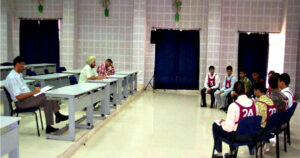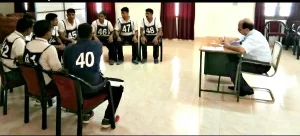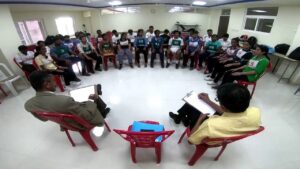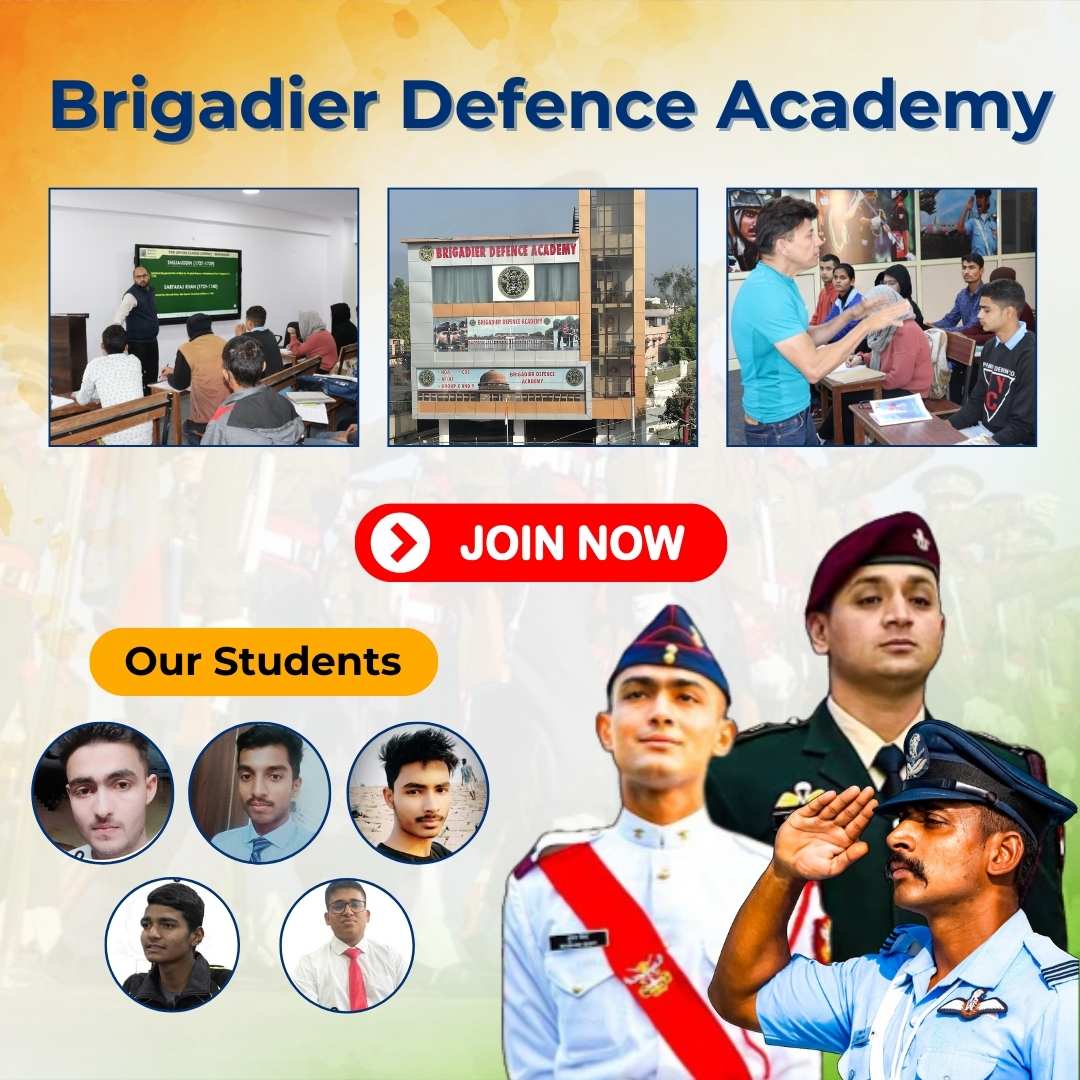- Posted on
- Manya
- No Comments
Why do candidates Fail in PPDT, Narration & GD?
Candidates may fail in Picture Perception and Description Test (PPDT), narration, and group discussion (GD) for various reasons, ranging from lack of preparation to psychological factors. These stages are crucial components of selection processes, especially in exams like the Services Selection Board (SSB) for the Indian Armed Forces. Here are some common reasons why candidates may fail:
- Lack of Preparation: Many candidates underestimate the importance of thorough preparation for these stages. They may not be familiar with the format of the tests, the evaluation criteria, or the skills required to perform well. Without adequate preparation, candidates may struggle to articulate their thoughts effectively or present themselves in a favorable light.
- Poor Communication Skills: Effective communication is essential for success in PPDT, narration, and GD. Candidates who struggle to express their ideas clearly, coherently, and confidently may fail to make a positive impression on the assessors. This can include difficulties in speaking fluently, organizing thoughts logically, or using appropriate language.
- Lack of Confidence: Confidence plays a significant role in how candidates perform during these stages. Those who lack self-assurance may appear nervous, hesitant, or unsure of themselves, which can detract from their overall performance. Confidence is especially crucial during GD, where candidates must assert their opinions while respecting others’ views.
- Inability to Analyze Pictures: In PPDT, candidates are required to analyze a given picture and construct a story around it. Some candidates may struggle to interpret the image correctly or generate creative ideas for the story. This can result in narratives that are unoriginal, disjointed, or lack depth, leading to a lower score.
- Limited Vocabulary or Language Skills: Candidates with limited vocabulary or language skills may find it challenging to convey their thoughts effectively during narration or GD. They may struggle to find the right words to express complex ideas or may resort to repetitive language, which can detract from the quality of their performance.
- Inability to Work in a Team: Group discussion assesses candidates’ ability to work collaboratively with others, listen actively, and contribute meaningfully to the discussion. Candidates who dominate the conversation, fail to listen to their peers, or struggle to build on others’ ideas may not perform well in this stage.
- Negative Body Language: Non-verbal cues such as posture, eye contact, and facial expressions play a crucial role in communication. Candidates who exhibit negative body language, such as slouching, avoiding eye contact, or fidgeting, may create a poor impression on the assessors, regardless of the content of their speech.
- Lack of Originality: Assessors are looking for candidates who can think creatively and offer unique perspectives during PPDT, narration, and GD. Those who rely on clichés, stereotypes, or pre-prepared responses may fail to stand out from the crowd and may be perceived as uninteresting or uninspiring.
- Inability to Handle Pressure: The selection process can be highly stressful, and candidates must be able to perform under pressure. Those who succumb to nerves, become flustered, or lose focus during PPDT, narration, or GD may struggle to perform at their best and may ultimately fail to meet the assessors’ expectations.
- Failure to Adapt to Assessor Expectations: Each selection board may have slightly different criteria for evaluating candidates. Some candidates may fail because they do not fully understand what the assessors are looking for or because they are unable to adapt their approach to meet these expectations effectively.
In conclusion of candidates Fail in PPDT, Narration & GD?
candidates may fail in PPDT, narration, and GD for a variety of reasons, including lack of preparation, poor communication skills, lack of confidence, inability to analyze pictures, limited vocabulary or language skills, inability to work in a team, negative body language, lack of originality, inability to handle pressure, and failure to adapt to assessor expectations. To succeed in these stages, candidates must address these potential pitfalls through thorough preparation, practice, and self-awareness.
FAQ’s
- What is PPDT, and how is it conducted?
- PPDT stands for Picture Perception and Description Test. It is a part of the selection process for entry into the Indian Armed Forces. In this test, candidates are shown a picture for 30 seconds and then asked to write a story based on the picture within 4 minutes.
- What are the key elements assessors look for in PPDT stories?
- Assessors look for candidates’ ability to analyze the picture, construct a coherent and original story, and demonstrate qualities such as leadership, initiative, and problem-solving skills. They also evaluate language proficiency, creativity, and the ability to express ideas effectively.
- How can I improve my performance in PPDT?
- Practice analyzing pictures quickly and generating creative story ideas. Focus on organizing your thoughts logically and expressing them clearly in writing. Work on building a diverse vocabulary and pay attention to grammar and spelling.
- What is narration, and why is it important?
- Narration follows PPDT and involves candidates individually narrating their stories to the group. It assesses candidates’ communication skills, confidence, and ability to present their ideas effectively within a limited time frame.
- What are some tips for effective narration?
- Speak clearly and confidently, maintaining a steady pace. Structure your narration with a clear beginning, middle, and end. Use gestures and facial expressions to emphasize key points, and maintain eye contact with the assessors and other candidates.
- What is a group discussion (GD), and how does it work?
- GD is a structured discussion among a group of candidates on a given topic. It assesses candidates’ ability to communicate, collaborate, and express their opinions while respecting others’ views. Topics can range from current affairs to abstract ideas.
- How can I prepare for GD effectively?
- Stay updated on current affairs and develop a well-rounded understanding of various topics. Practice articulating your opinions clearly and logically, and learn to listen actively and build on others’ ideas. Work on maintaining a balanced and respectful demeanor during discussions.
- What are some common mistakes to avoid during GD?
- Avoid dominating the discussion or being overly aggressive in presenting your views. Also, steer clear of interrupting others or dismissing their opinions outright. Instead, focus on contributing constructively to the discussion and fostering a collaborative atmosphere.
- How important is body language during PPDT, narration, and GD?
- Body language plays a significant role in communication and impression management. Maintain an upright posture, make eye contact, and use gestures appropriately to convey confidence and engagement. Avoid negative body language such as slouching or fidgeting, as it can detract from your overall performance.
- What should I do if I fail in PPDT, narration, or GD?
- If you don’t succeed initially, don’t be discouraged. Take feedback from assessors, identify areas for improvement, and work on honing your skills through practice and self-reflection. Remember that failure is often a stepping stone to success, and perseverance is key to achieving your goals in the long run.










